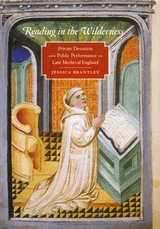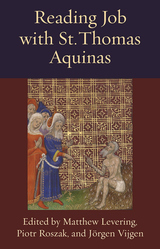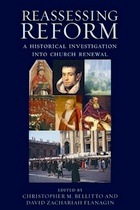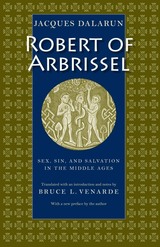5 start with R start with R

Drawing on the work of W. J. T. Mitchell, Michael Camille, and others working at the image-text crossroads, Reading in the Wilderness addresses the manuscript’s texts and illustrations to examine connections between reading and performance within the solitary monk’s cell and also outside. Brantley reimagines the medieval codex as a site where the meanings of images and words are performed, both publicly and privately, in the act of reading.



This unusual biographical work traces the life and career of Ademar of Chabannes, a monk, historian, liturgist, and hagiographer who lived at the turn of the first Christian millennium. Thanks to the unique collection of over one thousand folios of autograph manuscript that Ademar left behind, Richard Landes has been able to reconstruct in great detail the development of Ademar's career and the events of his day, and to suggest several major revisions in the general picture held by current medieval historiography.
Above all, the author's research confirms and elaborates the realization (first articulated over sixty years ago by the historian Louis Saltet) that in 1029 Ademar suffered a humiliating defeat at the height of his career and spent his final five years feverishly producing a dossier of forgeries and fictions about his own contemporaries that has few parallels in the annals on medieval forgery. Not only did that dossier of forgeries succeed in misleading historians from the twelfth century right up to the twentieth, but few historians have been willing to explore the implications of so striking a revision in Ademar's biography. Richard Landes is the first to systematically examine the evidence and the implications for our understanding of the period, and he offers an explanation of how these remarkable developments might have occurred.

READERS
Browse our collection.
PUBLISHERS
See BiblioVault's publisher services.
STUDENT SERVICES
Files for college accessibility offices.
UChicago Accessibility Resources
home | accessibility | search | about | contact us
BiblioVault ® 2001 - 2024
The University of Chicago Press









